
The ARC Centre of Excellence in Population Ageing Research (CEPAR) celebrated the Centre’s many achievements at the
CEPAR Research Showcase
29 August 2024 | 9.00am - 5.00pm (AEST)
Leighton Hall, John Niland Scientia Building, UNSW Sydney
A unique collaboration between academia, government and industry, CEPAR has undertaken, since 2011, a major multidisciplinary research program to address one of the major economic and social challenges of the twenty first century, with a view to providing Australia, the greater Pacific region, and the world with crucial new knowledge and evidence to enable individuals, businesses, and governments to respond better to demographic change.
The Research Showcase program included sessions focused on:
- research highlights and outcomes from the CEPAR research program;
- stakeholder engagement, research translation and resources developed; and
- the next generation of researchers in population ageing.
Registration has closed.
Video recordings
OPENING REMAKRS AND RESEARCH HIGHLIGHTS I
RESEARCH HIGHLIGHTS II AND STAKEHOLDER ENGAGEMENT
RESEARCH TRANSLATION AND RESOURCES DEVELOPED
THE NEXT GENERATION - FUTURE RESEARCH DIRECTIONS
|
Time (AEST) |
|
|
8.00 – 9.00am |
Arrival and Registration |
|
9.00 – 9.15am |
John Piggott, CEPAR Director, UNSW Sydney Bronwyn Fox, Deputy Vice-Chancellor Research & Enterprise, UNSW Sydney Frederik Anseel, Dean, UNSW Business School |
|
9.15 – 10.30am |
SESSION ONE: RESEARCH HIGHLIGHTS |
|
9.15 – 9.30am |
Cognitive Ageing, Decision-Making and Productive Ageing Kaarin Anstey (School of Psychology, UNSW Sydney, CEPAR) |
|
9.30 – 9.45am |
Rational Choice Theory and Consumers Michael Keane (School of Economics, UNSW Sydney, CEPAR) |
|
9.45 – 10.00am |
Guiding Financial Decision Making for and in Retirement Hazel Bateman (School of Risk and Actuarial Studies, UNSW Sydney, CEPAR) |
|
10.00 – 10.15am |
Managing and Modelling Longevity and Disability Risks in Retirement Michael Sherris (School of Risk and Actuarial Studies, UNSW Sydney, CEPAR) |
|
10.15 – 10.30am |
John Piggott (School of Economics, UNSW Sydney, CEPAR) |
|
10.30 – 11.00am |
Morning Tea |
|
11.00am – 12.30pm |
SESSION ONE: RESEARCH HIGHLIGHTS (continued) |
|
11.00 – 11.15am |
Lessons from the Regional Macro Modelling Stream Warwick McKibbin (Crawford School of Public Policy, ANU, CEPAR) |
|
11.15 – 11.30am |
Demographic Change and Optimal Policy Alan Woodland (School of Economics, UNSW Sydney, CEPAR) |
|
11.30 – 11.45am |
Compositional Aspects of Australia’s Older Population: Projections to Mid-Century Jeromey Temple (School of Population and Global Health, University of Melbourne, CEPAR) |
|
11.45am – 12.00pm |
Socio-Economic Inequities in the Health of Older Adults: Implications for Population Ageing Fiona Blyth (School of Public Health, University of Sydney, CEPAR) |
|
12.00 – 12.15pm |
Mature Workers in Organisations: Key Learnings and Future Directions Sharon Parker (Future of Work Institute, Curtin University) |
|
12.15 – 12.30pm |
Navigating Age, Gender and Care in the Multigenerational Workforce Marian Baird (University of Sydney Business School, CEPAR) |
|
12.30 – 12.50pm |
SESSION TWO: RESEARCH TRANSLATION AND RESOURCES DEVELOPED |
|
12.30 – 12.40pm |
Marc de Cure (CEPAR, UNSW Sydney) |
|
12.40 – 12.50pm |
Lynn Kelly (Commonwealth Treasury) |
|
12.50 – 1.50pm |
Lunch |
|
1.50 – 3.00pm |
SESSION TWO: RESEARCH TRANSLATION AND RESOURCES DEVELOPED (continued) |
|
1.50 – 2.00pm |
CEPAR: The Greatest Hits - Research Briefs and Fact Sheets Rafal Chomik (UNSW Sydney, CEPAR) |
|
2.00 – 2.10pm |
The CEPAR Population Ageing Futures Archive and the CEPAR Metadata Database on Ageing Jeromey Temple (University of Melbourne School of Population and Global Health, CEPAR) |
|
2.10 – 2.20pm |
Worldwide Data Availabilities and Gaps in Studying Healthy Ageing: The Healthy Ageing Toolkit Saman Khalatbari-Soltani (School of Public Health, The University of Sydney, CEPAR) |
|
2.20 – 2.30pm |
Yvonne Leung (School of Psychology, UNSW Sydney, CEPAR) |
|
2.30 – 2.40pm |
Leading an Age-Diverse Workforce with the Ascent Leadership Development Program Daniela Andrei (School of Management and Marketing, Curtin University, CEPAR) |
|
2.40 – 2.50pm |
Positive Lessons from Researching Older Workers in Organisations: From Policy Review to Intervention Alison Williams (University of Sydney Business School, CEPAR) |
|
2.50 – 3.00pm |
Modelling Retirement Income Risks and Solutions: A Retirement Income Toolkit in R Michelle Vhudzijena (School of Risk and Actuarial Studies, UNSW Sydney, CEPAR) |
|
3.00 – 3.30pm |
Afternoon Tea |
|
3.30 – 4.50pm |
SESSION THREE: THE NEXT GENERATION - FUTURE RESEARCH DIRECTIONS |
|
3.30-3.35 |
Marian Baird (University of Sydney Business School, CEPAR) |
|
3.35 – 3.50pm |
Supported Decision-Making for Diverse Older Adults in the 21st Century Craig Sinclair (School of Psychology, UNSW Sydney, CEPAR) |
|
3.50 – 4.05pm |
Katja Hanewald (School of Risk and Actuarial Studies, UNSW Sydney, CEPAR) |
|
4.05 – 4.20pm |
George Kudrna (UNSW Sydney, CEPAR) |
|
4.20 – 4.35pm |
Designing more Age Inclusive Work and Workplaces: Ongoing and Future Research Directions Daniela Andrei (School of Management and Marketing, Curtin University, CEPAR) |
|
4.35 – 4.50pm |
Population Ageing, National Saving and External Balances Larry Liu (Crawford School of Public Policy, ANU, CEPAR) |
|
4.50 – 5.00pm |
CLOSING REMARKS |
 John Piggott AO FASSA is Director of CEPAR at UNSW Sydney, where he is Scientia Professor of Economics. A former Australian Professorial Fellow, he has published widely on issues in retirement and pension economics and finance, and in public finance more generally; his research has appeared in the leading international economics and actuarial academic journals. From 2008-2010, John was Visiting Scholar at the Wharton School of Business, and in 2018 was awarded a Rockefeller Residency to undertake research into ageing and inequality in Asia. He has worked with various governments, in Asia and elsewhere, on pension policy. In 2019, he was appointed co-chair of the Think20 (T20) Task Force on Aging Populations during Japan’s G20 Presidency and is currently a Commissioner on the US National Academy of Medicine’s International Commission on Healthy Longevity. In 2020, he was appointed an Officer of the Order of Australia for contributions to population ageing research and public policy development.
John Piggott AO FASSA is Director of CEPAR at UNSW Sydney, where he is Scientia Professor of Economics. A former Australian Professorial Fellow, he has published widely on issues in retirement and pension economics and finance, and in public finance more generally; his research has appeared in the leading international economics and actuarial academic journals. From 2008-2010, John was Visiting Scholar at the Wharton School of Business, and in 2018 was awarded a Rockefeller Residency to undertake research into ageing and inequality in Asia. He has worked with various governments, in Asia and elsewhere, on pension policy. In 2019, he was appointed co-chair of the Think20 (T20) Task Force on Aging Populations during Japan’s G20 Presidency and is currently a Commissioner on the US National Academy of Medicine’s International Commission on Healthy Longevity. In 2020, he was appointed an Officer of the Order of Australia for contributions to population ageing research and public policy development.
 Bronwyn Fox FTSE, FRACI, GAICD, FIEAust was recently appointed as the Deputy Vice-Chancellor (Research & Enterprise) at UNSW Sydney, commencing July 2024. She joined CSIRO as Chief Scientist in October 2021, having previously held the position of Deputy Vice-Chancellor (Research and Enterprise) at Swinburne University. She is an internationally recognised expert on carbon fibre and composite materials and was a founding Director of Swinburne’s Manufacturing Futures Research Institute. In October 2023, Bronwyn was appointed by The Minister for Industry and Science as Australia’s Expert Adviser to the International Scientific Report on Advanced AI Safety, led by Yoshua Bengio. Professor Fox represents Australia at the Expert Advisory Panel alongside representatives from 30 countries including USA, Japan, Singapore, the EU and the UN. Bronwyn is a former Chair of the Australian Academy of Technology and Engineering (Victorian Division), a Fellow of the Academy of Technological Sciences and Engineering, a Fellow of Engineers Australia, a Fellow of the Royal Australian Chemical Institute and a Graduate of the Australian Institute of Company Directors. Bronwyn was a member of the National Quantum Advisory Committee and was also appointed as Chair of the National Robotics Strategy Advisory Committee. Bronwyn is a Board member and Chair of Museums Victoria’s Research Committee.
Bronwyn Fox FTSE, FRACI, GAICD, FIEAust was recently appointed as the Deputy Vice-Chancellor (Research & Enterprise) at UNSW Sydney, commencing July 2024. She joined CSIRO as Chief Scientist in October 2021, having previously held the position of Deputy Vice-Chancellor (Research and Enterprise) at Swinburne University. She is an internationally recognised expert on carbon fibre and composite materials and was a founding Director of Swinburne’s Manufacturing Futures Research Institute. In October 2023, Bronwyn was appointed by The Minister for Industry and Science as Australia’s Expert Adviser to the International Scientific Report on Advanced AI Safety, led by Yoshua Bengio. Professor Fox represents Australia at the Expert Advisory Panel alongside representatives from 30 countries including USA, Japan, Singapore, the EU and the UN. Bronwyn is a former Chair of the Australian Academy of Technology and Engineering (Victorian Division), a Fellow of the Academy of Technological Sciences and Engineering, a Fellow of Engineers Australia, a Fellow of the Royal Australian Chemical Institute and a Graduate of the Australian Institute of Company Directors. Bronwyn was a member of the National Quantum Advisory Committee and was also appointed as Chair of the National Robotics Strategy Advisory Committee. Bronwyn is a Board member and Chair of Museums Victoria’s Research Committee.
 Frederik Anseel is the Dean of the UNSW Business School. He is also a Professor of Management and has held several senior leadership positions at UNSW Business School. Previously, Frederik was Vice Dean at King's College London, Head of Department at Ghent University (Belgium) and held visiting positions at ESSEC Business School (France), Bocconi University (Italy) and University of Groningen (The Netherlands). He is an elected Fellow of the Academy of Social Sciences in Australia, the Society for Industrial and Organizational Psychology, and the International Association of Applied Psychology. He also served as the President of the European Association of Work and Organizational Psychology for five years. Frederik studies how people and organisations learn and adapt to change. His research has been published in leading journals such as Journal of Applied Psychology, Journal of Management, American Psychologist, and Psychological Science. His work has also been featured in media such as Harvard Business Review, Science, Nature, the Financial Times, the Australian Financial Review, and The Guardian. Frederik has several years of industry experience by founding and managing a university spin-off, The Vigor Unit. Through keynotes, executive education and consultancy, he contributed to leadership development initiatives in a variety of industries such as banking, healthcare, consulting, government, energy management, and manufacturing and he has worked with executives in these industries in some of the leading business capitals in the world. Since 2021, Frederik has been recognised by LinkedIn as one of the "Top Voices" to follow on their platform for insights on Work & Careers.
Frederik Anseel is the Dean of the UNSW Business School. He is also a Professor of Management and has held several senior leadership positions at UNSW Business School. Previously, Frederik was Vice Dean at King's College London, Head of Department at Ghent University (Belgium) and held visiting positions at ESSEC Business School (France), Bocconi University (Italy) and University of Groningen (The Netherlands). He is an elected Fellow of the Academy of Social Sciences in Australia, the Society for Industrial and Organizational Psychology, and the International Association of Applied Psychology. He also served as the President of the European Association of Work and Organizational Psychology for five years. Frederik studies how people and organisations learn and adapt to change. His research has been published in leading journals such as Journal of Applied Psychology, Journal of Management, American Psychologist, and Psychological Science. His work has also been featured in media such as Harvard Business Review, Science, Nature, the Financial Times, the Australian Financial Review, and The Guardian. Frederik has several years of industry experience by founding and managing a university spin-off, The Vigor Unit. Through keynotes, executive education and consultancy, he contributed to leadership development initiatives in a variety of industries such as banking, healthcare, consulting, government, energy management, and manufacturing and he has worked with executives in these industries in some of the leading business capitals in the world. Since 2021, Frederik has been recognised by LinkedIn as one of the "Top Voices" to follow on their platform for insights on Work & Careers.
SESSION ONE: RESEARCH HIGHLIGHTS
Chair: Warwick McKibbin
Cognitive Ageing, Decision-Making and Productive Ageing
Kaarin Anstey (School of Psychology, UNSW Sydney, CEPAR)
 Kaarin Anstey is an Australian Research Council (ARC) Laureate Fellow and a Scientia Professor in the School of Psychology at the University of New South Wales (UNSW Sydney). She is also Director of the UNSW Ageing Futures Institute, and Co-Deputy Director of CEPAR as well as a conjoint Senior Principal Research Scientist at Neuroscience Research Australia. Anstey’s research programs focus on cognitive resilience in ageing as well as prevention of dementia. She has led the development of app-based studies of life-course ageing and cognitive resilience using digital technology and wearables, as well as risk assessment tools and interventions to reduce risk of cognitive decline and dementia. Anstey is a member of the WHO Guideline Development Committee for the Guidelines on Risk Reduction for Cognitive Decline and Dementia and is a member of the World Dementia Council.
Kaarin Anstey is an Australian Research Council (ARC) Laureate Fellow and a Scientia Professor in the School of Psychology at the University of New South Wales (UNSW Sydney). She is also Director of the UNSW Ageing Futures Institute, and Co-Deputy Director of CEPAR as well as a conjoint Senior Principal Research Scientist at Neuroscience Research Australia. Anstey’s research programs focus on cognitive resilience in ageing as well as prevention of dementia. She has led the development of app-based studies of life-course ageing and cognitive resilience using digital technology and wearables, as well as risk assessment tools and interventions to reduce risk of cognitive decline and dementia. Anstey is a member of the WHO Guideline Development Committee for the Guidelines on Risk Reduction for Cognitive Decline and Dementia and is a member of the World Dementia Council.
Rational Choice Theory and Consumers
Michael Keane (School of Economics, UNSW Sydney, CEPAR)
 Michael Keane is an Australian Laureate Fellow, CEPAR Chief Investigator and Professor of Economics in the UNSW Business School. Several independent sources have placed Michael among the top economists internationally in terms of citations and the impact of his work. He is considered to be a world leader in choice modelling, and in the areas of life cycle labour supply, human capital investment, and the economics of education. In 2009 he prepared a report on tax transfers and labour supply for the Australian Treasury’s Commission on Australia’s Future Tax System, and he is currently engaged in a major research project aimed at improving the efficiency of the Australian tax system. He was elected a Fellow of the Econometric Society in 2010 and in 2018 was elected to the Econometric Society Council. He won the Kenneth Arrow Award in 2008, was named an Australian Federation Fellow in 2005 and was awarded an Australian Laureate Fellowship in 2011. He is an associate editor of the Journal of Econometrics and a fellow of both the Society of Labor Economists and the International Association for Applied Econometrics.
Michael Keane is an Australian Laureate Fellow, CEPAR Chief Investigator and Professor of Economics in the UNSW Business School. Several independent sources have placed Michael among the top economists internationally in terms of citations and the impact of his work. He is considered to be a world leader in choice modelling, and in the areas of life cycle labour supply, human capital investment, and the economics of education. In 2009 he prepared a report on tax transfers and labour supply for the Australian Treasury’s Commission on Australia’s Future Tax System, and he is currently engaged in a major research project aimed at improving the efficiency of the Australian tax system. He was elected a Fellow of the Econometric Society in 2010 and in 2018 was elected to the Econometric Society Council. He won the Kenneth Arrow Award in 2008, was named an Australian Federation Fellow in 2005 and was awarded an Australian Laureate Fellowship in 2011. He is an associate editor of the Journal of Econometrics and a fellow of both the Society of Labor Economists and the International Association for Applied Econometrics.
Guiding Financial Decision Making for and in Retirement
Hazel Bateman (School of Risk and Actuarial Studies, UNSW Sydney, CEPAR)
 Hazel Bateman is a Professor in the School of Risk & Actuarial Studies, UNSW Sydney, and Co-Deputy Director of CEPAR. Hazel’s research focusses on consumer financial decision making especially as it relates to retirement accumulation and decumulation with an emphasis on interventions to facilitate better financial decisions. Her current research investigates the role of choice and information architecture on lifecycle financial decisions including superannuation and housing. She also works on design of and demand for retirement products including annuities, aged care insurance and home equity release products. She is the author of numerous peer-reviewed publications and book chapters and has been a Chief Investigator on over a dozen Australian Research Council funded projects. Hazel has consulted on retirement income issues to international organisations including the OECD, the World Bank, the Social Insurance Administration (China) and the Korean Institute of Health and Social Affairs. She is the Chair of Netspar’s Scientific Council and President of the International Pension Research Association (IPRA). She also serves on the UniSuper Consultative Committee and the Advisory Boards of the Mercer CFA Institute Global Pension Index and the Conexus Institute.
Hazel Bateman is a Professor in the School of Risk & Actuarial Studies, UNSW Sydney, and Co-Deputy Director of CEPAR. Hazel’s research focusses on consumer financial decision making especially as it relates to retirement accumulation and decumulation with an emphasis on interventions to facilitate better financial decisions. Her current research investigates the role of choice and information architecture on lifecycle financial decisions including superannuation and housing. She also works on design of and demand for retirement products including annuities, aged care insurance and home equity release products. She is the author of numerous peer-reviewed publications and book chapters and has been a Chief Investigator on over a dozen Australian Research Council funded projects. Hazel has consulted on retirement income issues to international organisations including the OECD, the World Bank, the Social Insurance Administration (China) and the Korean Institute of Health and Social Affairs. She is the Chair of Netspar’s Scientific Council and President of the International Pension Research Association (IPRA). She also serves on the UniSuper Consultative Committee and the Advisory Boards of the Mercer CFA Institute Global Pension Index and the Conexus Institute.
Managing and Modelling Longevity and Disability Risks in Retirement
Michael Sherris (School of Risk and Actuarial Studies, UNSW Sydney, CEPAR)

Michael Sherris is Emeritus Professor in the School of Risk and Actuarial Studies and a CEPAR Chief Investigator at UNSW Sydney. He was Head of Actuarial Studies at UNSW until 2010 having been appointed to UNSW in 1998 to establish the Actuarial Studies program. He is a Fellow of the Institute of Actuaries of Australia, the Institute of Actuaries (UK) and the Society of Actuaries (North America). As Chief Investigator and Director of Industry Engagement in CEPAR his research, research student supervision and mentoring of early career researchers has focused on longevity, health and functional disability risk modelling, long term care insurance and longevity risk management.
John Piggott (School of Economics, UNSW Sydney, CEPAR)
 John Piggott AO FASSA is Director of CEPAR at UNSW Sydney, where he is Scientia Professor of Economics. For his full bio, please refer to the opening remarks session.
John Piggott AO FASSA is Director of CEPAR at UNSW Sydney, where he is Scientia Professor of Economics. For his full bio, please refer to the opening remarks session.
Lessons from the Regional Macro Modelling Stream
Warwick McKibbin (Crawford School of Public Policy, ANU, CEPAR)
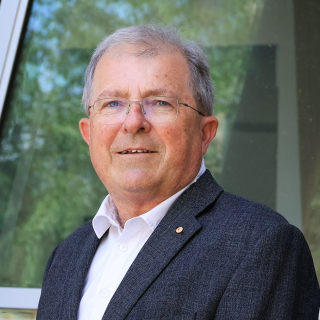 Warwick J. McKibbin AO FASSA is a Distinguished Professor of Economics and Public Policy, Director of the Centre for Applied Macroeconomic Analysis (CAMA) in the Crawford School of Public Policy at the Australian National University (ANU) and Director of Policy Engagement and ANU Node Leader of CEPAR. He is a non-resident Senior Fellow at the Peterson Institute for International Economics (PIIE) in Washington, DC and Director of Research at McKibbin Software Group Pty Ltd. Professor McKibbin is a Distinguished Public Policy Fellow of the Economic Society of Australia; a Distinguished Fellow of the Asia and Pacific Policy Society; a Fellow of the Centre for Economic Policy Research (London). He served on the Policy Board of the Reserve Bank of Australia from 2001 to 2011 and worked on the staff at the Reserve Bank from 1975 to 1991. From 1991-1993, he was a Senior Fellow at the Brookings Institution in Washington D.C and a non-Resident Senior Fellow from 1993-2023. Professor McKibbin was awarded the Order of Australia in 2016 “For Distinguished Service to Education as an Economist, particularly in the Area of Global Climate Policy, and to Financial Institutions and International Organizations” and the Centenary Medal in 2003 “For Service to Australian Society through Economic Policy and Tertiary Education”.
Warwick J. McKibbin AO FASSA is a Distinguished Professor of Economics and Public Policy, Director of the Centre for Applied Macroeconomic Analysis (CAMA) in the Crawford School of Public Policy at the Australian National University (ANU) and Director of Policy Engagement and ANU Node Leader of CEPAR. He is a non-resident Senior Fellow at the Peterson Institute for International Economics (PIIE) in Washington, DC and Director of Research at McKibbin Software Group Pty Ltd. Professor McKibbin is a Distinguished Public Policy Fellow of the Economic Society of Australia; a Distinguished Fellow of the Asia and Pacific Policy Society; a Fellow of the Centre for Economic Policy Research (London). He served on the Policy Board of the Reserve Bank of Australia from 2001 to 2011 and worked on the staff at the Reserve Bank from 1975 to 1991. From 1991-1993, he was a Senior Fellow at the Brookings Institution in Washington D.C and a non-Resident Senior Fellow from 1993-2023. Professor McKibbin was awarded the Order of Australia in 2016 “For Distinguished Service to Education as an Economist, particularly in the Area of Global Climate Policy, and to Financial Institutions and International Organizations” and the Centenary Medal in 2003 “For Service to Australian Society through Economic Policy and Tertiary Education”.
Demographic Change and Optimal Policy
Alan Woodland (School of Economics, UNSW Sydney, CEPAR)
 Alan Woodland is Professor of Economics in the School of Economics at UNSW Sydney and a CEPAR Chief Investigator. Alan's primary research interests and publications are in the areas of international trade theory, applied econometrics and population ageing. He has published many papers in leading journals including Econometrica, Review of Economic Studies, Journal of Econometrics, Journal of International Economics, European Economic Review and the Journal of Economic Dynamics and Control. Current research focusses on the analysis of taxation and retirement polices within the context of population ageing and their implications for macroeconomic, distributional, and economic welfare outcomes within ageing populations. He is an elected Fellow of the Econometric Society and the recipient of the Distinguished Economist Award of the Economics Society of Australia. He has previously served on various Econometric Society committees, including the elected membership of its Central Council and as Chair of the Australasian Standing Committee. He is an associate editor of the Review of International Economics and is on the editorial boards of the International Journal of Economic Theory and the Economic Record, and the scientific boards of the European Trade Study Group and the Asia Pacific Trade Seminars.
Alan Woodland is Professor of Economics in the School of Economics at UNSW Sydney and a CEPAR Chief Investigator. Alan's primary research interests and publications are in the areas of international trade theory, applied econometrics and population ageing. He has published many papers in leading journals including Econometrica, Review of Economic Studies, Journal of Econometrics, Journal of International Economics, European Economic Review and the Journal of Economic Dynamics and Control. Current research focusses on the analysis of taxation and retirement polices within the context of population ageing and their implications for macroeconomic, distributional, and economic welfare outcomes within ageing populations. He is an elected Fellow of the Econometric Society and the recipient of the Distinguished Economist Award of the Economics Society of Australia. He has previously served on various Econometric Society committees, including the elected membership of its Central Council and as Chair of the Australasian Standing Committee. He is an associate editor of the Review of International Economics and is on the editorial boards of the International Journal of Economic Theory and the Economic Record, and the scientific boards of the European Trade Study Group and the Asia Pacific Trade Seminars.
Compositional Aspects of Australia’s Older Population: Projections to Mid-Century
Jeromey Temple (School of Population and Global Health, University of Melbourne, CEPAR)
Jeromey Temple is Professor of Economic Demography at the University of Melbourne node of CEPAR. His research is mainly at the intersection of demography, economics, and public policy – and explores their relationship to ageing at both the individual and population level. Temple’s research is supported by a number of ARC and National Health and Medical Research Council (NHMRC) grants which are all focused upon improving the Australian society and economies adaptation to population ageing. Jeromey holds a BA in Population Studies (first class hons), a B.Com and Ph.D in Demography all from the Australian National University.
Socio-Economic Inequities in the Health of Older Adults: Implications for Population Ageing
Fiona Blyth (School of Public Health, University of Sydney, CEPAR)
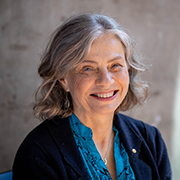 Fiona Blyth AM is Professor of Public Health and Pain Medicine at the University of Sydney and a CEPAR Chief Investigator. She is a public health physician and pain epidemiologist. She is Program Director of the Master of Clinical Epidemiology Program at the School of Public Health within the CEPAR University of Sydney Node. She has close collaborative links with local and international groups researching healthy ageing, arthritis/musculoskeletal conditions, and comorbidity/multimorbidity. Fiona also works in health policy areas (global and national pain policy; promoting the use of research evidence in health policy).
Fiona Blyth AM is Professor of Public Health and Pain Medicine at the University of Sydney and a CEPAR Chief Investigator. She is a public health physician and pain epidemiologist. She is Program Director of the Master of Clinical Epidemiology Program at the School of Public Health within the CEPAR University of Sydney Node. She has close collaborative links with local and international groups researching healthy ageing, arthritis/musculoskeletal conditions, and comorbidity/multimorbidity. Fiona also works in health policy areas (global and national pain policy; promoting the use of research evidence in health policy).
Mature Workers in Organisations: Key Learnings and Future Directions
Sharon Parker (Future of Work Institute, Curtin University, CEPAR)
 Sharon K. Parker is an ARC Kathleen Fitzpatrick Laureate Fellow and a John Curtin Distinguished Professor and CEPAR Chief Investigator at Curtin University. Her research areas include work design, organisational change, proactivity, job performance, intervention studies, aging in the workplace, and employee mental health/well-being. She is Director of the Centre for Transformative Work Design; Stream Lead for CEPAR’s Mature Workers in Organisations Research Stream; and lead Chief Investigator on the Design for Care project, amongst others. For more details, see https://www.transformativeworkdesign.com/sharon-parker
Sharon K. Parker is an ARC Kathleen Fitzpatrick Laureate Fellow and a John Curtin Distinguished Professor and CEPAR Chief Investigator at Curtin University. Her research areas include work design, organisational change, proactivity, job performance, intervention studies, aging in the workplace, and employee mental health/well-being. She is Director of the Centre for Transformative Work Design; Stream Lead for CEPAR’s Mature Workers in Organisations Research Stream; and lead Chief Investigator on the Design for Care project, amongst others. For more details, see https://www.transformativeworkdesign.com/sharon-parker
Navigating Age, Gender and Care in the Multigenerational Workforce
Marian Baird (University of Sydney Business School, CEPAR)
Marian Baird AO is Professor of Gender and Employment Relations in Work and Organisational Studies at the University of Sydney Business School. She is a Fellow of the Academy of Social Sciences in Australia, a CEPAR Chief Investigator and an Expert Panel Member of the Fair Work Commission. Marian is an internationally recognised scholar in the field of women, work, and economic empowerment over the life course.
SESSION TWO: RESEARCH TRANSLATION AND RESOURCES DEVELOPED
Chair: Hazel Bateman
Marc de Cure, CEPAR Advisory Board Chair, Adjunct Professor, CEPAR, UNSW Business School
 Marc de Cure has recognised since 2001 the social and economic significance of demographic change and the need to undertake and promulgate research to inform government policy, social awareness and commercial responses. He played a key role in establishing CEPAR and provides critical input to the development of the Centre’s ongoing strategy, research translation and engagement activities. He has chaired both the Advisory Board and the Leaders’ Forum since inception. Marc has been a member of the Business Advisory Council of the UNSW Business School since 2001 and was appointed as an Adjunct Professor at the UNSW Business School in 2015. He holds a Bachelor of Commerce (Honours) from UNSW and is a Fellow of the Institute of Chartered Accountants ANZ. Marc has been a non-executive company director and senior executive in financial and professional services groups globally. He was AIA Group’s Executive Vice President and CFO and AMP Group’s CFO, Executive General Manager Strategy and Executive General Manager responsible for AMP Bank and Virgin Money, and a senior partner in PwC and Bain & Co.
Marc de Cure has recognised since 2001 the social and economic significance of demographic change and the need to undertake and promulgate research to inform government policy, social awareness and commercial responses. He played a key role in establishing CEPAR and provides critical input to the development of the Centre’s ongoing strategy, research translation and engagement activities. He has chaired both the Advisory Board and the Leaders’ Forum since inception. Marc has been a member of the Business Advisory Council of the UNSW Business School since 2001 and was appointed as an Adjunct Professor at the UNSW Business School in 2015. He holds a Bachelor of Commerce (Honours) from UNSW and is a Fellow of the Institute of Chartered Accountants ANZ. Marc has been a non-executive company director and senior executive in financial and professional services groups globally. He was AIA Group’s Executive Vice President and CFO and AMP Group’s CFO, Executive General Manager Strategy and Executive General Manager responsible for AMP Bank and Virgin Money, and a senior partner in PwC and Bain & Co.
Lynn Kelly, First Assistant Secretary, Commonwealth Treasury
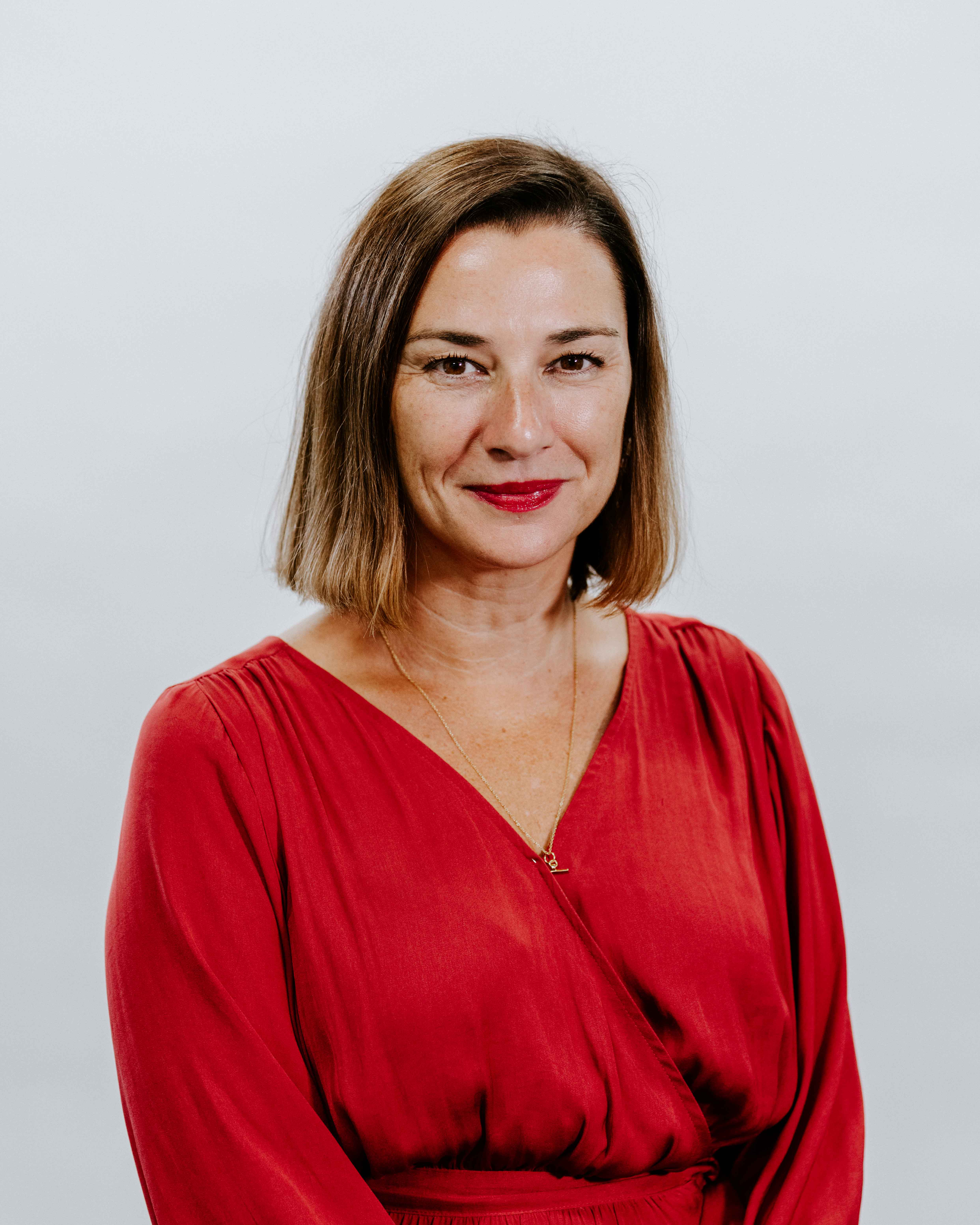 Lynn Kelly is the First Assistant Secretary of the Retirement, Advice and Investment Division at Treasury and is responsible for providing policy and legislative advice to Government on initiatives to improve Australians’ financial security and raise retirement standards. Lynn’s previous roles at Treasury have included the Interim Chief Executive Officer of the Board of Tax and Chief Adviser, Corporate and International Taxation Division. Lynn joined Treasury’s Sydney office in December 2016 after over twenty years as a tax professional in the private sector where she worked across diverse industries, including banking, media and consulting.
Lynn Kelly is the First Assistant Secretary of the Retirement, Advice and Investment Division at Treasury and is responsible for providing policy and legislative advice to Government on initiatives to improve Australians’ financial security and raise retirement standards. Lynn’s previous roles at Treasury have included the Interim Chief Executive Officer of the Board of Tax and Chief Adviser, Corporate and International Taxation Division. Lynn joined Treasury’s Sydney office in December 2016 after over twenty years as a tax professional in the private sector where she worked across diverse industries, including banking, media and consulting.
SESSION TWO: RESEARCH TRANSLATION AND RESOURCES DEVELOPED (continued)
Chair: Kaarin Anstey
CEPAR: The Greatest Hits - Research Briefs and Fact Sheets
Rafal Chomik (UNSW Sydney, CEPAR)
Rafal Chomik will take you on a tour of his top ten greatest hits from a decade of population ageing insights. Based on the Centre’s widely cited research translation resources, these are the maps, infographics, and charts that most captivated the visual cortex, garnered the greatest media mentions, and best brought population ageing to life.
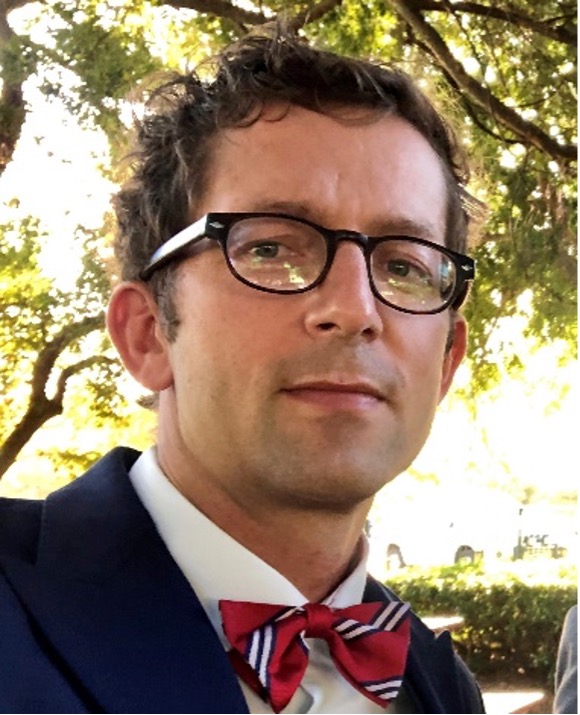 Rafal Chomik is a CEPAR Senior Research Fellow at UNSW Sydney. He has worked as an economic advisor for the British Government, a pensions economist at the OECD, and a consultant for UNESCAP, WB, APEC, and ADB. He specialises in social policy design, pension analysis, demographic modelling, and health and economic inequality. His current work at CEPAR is focused on producing accessible, policy related briefing papers that communicate academic insights to policy makers.
Rafal Chomik is a CEPAR Senior Research Fellow at UNSW Sydney. He has worked as an economic advisor for the British Government, a pensions economist at the OECD, and a consultant for UNESCAP, WB, APEC, and ADB. He specialises in social policy design, pension analysis, demographic modelling, and health and economic inequality. His current work at CEPAR is focused on producing accessible, policy related briefing papers that communicate academic insights to policy makers.
The CEPAR Population Ageing Futures Archive and the CEPAR Metadata Database on Ageing
Jeromey Temple (University of Melbourne School of Population and Global Health, CEPAR)
The University of Melbourne CEPAR team has produced several widely used research translation tools. The first is the Metadata Database on Ageing which assists students and researchers to identify what data has been collected (for their specific research interest in ageing), how it was collected and how to gain access to the data. In total, 110,301 variables from 85 microdata surveys were included in the database, with an easy-to-use webtool and introductory guide written for students. The second tool is the Population Ageing Futures Data Archive which provides downloadable estimates and population projections of various sub-populations. Both tools are available on the CEPAR website.
Jeromey Temple is Professor of Economic Demography at the University of Melbourne node of CEPAR. For his full bio, please refer to session one in this program.
Worldwide Data Availabilities and Gaps in Studying Healthy Ageing: The Healthy Ageing Toolkit
Saman Khalatbari-Soltani (School of Public Health, The University of Sydney, CEPAR)
Population ageing is a transforming demographic force. To support evidence-based efforts for promoting healthy ageing, understanding data availabilities and gaps to study ageing is needed. This talk will present the results from our comprehensive review of global ageing cohort studies. Additionally, we will introduce the Healthy Ageing Toolkit (healthyageing-toolkit.cepar.edu.au), a resource designed to facilitate research and policy development in this field.
Saman Khalatbari-Soltani is a social epidemiologist, a Senior Lecturer in Population Health at the University of Sydney School of Public Health and CEPAR Associate Investigator. Khalatbari-Soltani obtained a PhD in Epidemiology from the University of Lausanne and a Public Health PhD certificate from the Swiss School of Public Health. During a one-year fellowship at the University of Cambridge, she trained in Epidemiology. Khalatbari-Soltani research encompasses two main areas: 1) social determinants of health of older adults and health inequities from a life-course perspective – to create a strengths-based approach to healthy ageing to inform policy and health systems, and 2) contemporary methodological approaches and challenges in social epidemiology to drive better ways to measure and operationalise socioeconomic indicators.
Yvonne Leung (School of Psychology, UNSW Sydney, CEPAR)
This presentation will highlight the development and outcomes of the Personality and Total Health (PATH) Through Life Study, and the related policy reports on the mental health impact of COVID-19 and bushfires in 2019-2020.
 Yvonne Leung is a CEPAR Postdoctoral Fellow at the School of Psychology, UNSW Sydney. She has a background in cognitive psychology and her research focuses on cognitive ageing and dementia. She was formerly the coordinator of the International Centenarian Consortium-Dementia. She is experienced in harmonising internationally sourced data to examine factors associated with cognitive impairment in ethno-regionally diverse populations. Her current work (funded by CEPAR) examines gender differences in cognitive ageing, cognitive reserve, and expectations regarding ageing.
Yvonne Leung is a CEPAR Postdoctoral Fellow at the School of Psychology, UNSW Sydney. She has a background in cognitive psychology and her research focuses on cognitive ageing and dementia. She was formerly the coordinator of the International Centenarian Consortium-Dementia. She is experienced in harmonising internationally sourced data to examine factors associated with cognitive impairment in ethno-regionally diverse populations. Her current work (funded by CEPAR) examines gender differences in cognitive ageing, cognitive reserve, and expectations regarding ageing.
Leading an Age-Diverse Workforce with the Ascent Leadership Development Program
Leah Zoszak (Future of Work Institute, Curtin University, CEPAR)
During this presentation you will learn about an intervention project that the Curtin team designed, implemented, and evaluated to improve age-inclusive leadership within one of our partner organisations.
This resource was developed by Leah Zoszak and Eva Zellman. Leah is an Organisational Psychologist who has worked within research stream 3 of the CEPAR project at Curtin University for the past five years. As an experienced facilitator and organisational change consultant, Leah works with CEPAR's business partners through the assessment and diagnosis of their organisational policy and procedures to improve work across the lifespan. Eva is a Diversity & Inclusion (D&I) professional with extensive experience in identifying and implementing strategies to enhance inclusion across multiple diversity dimensions. She is currently completing a PhD at CEPAR's Curtin University node exploring leadership competencies that are important when leading ageing and age-diverse work teams, and how to best develop these competencies in leaders.

Daniela Andrei is a Senior Lecturer in the School of Management and Marketing at Curtin University, a CEPAR Associate Investigator and a member of the Cost Action - LeverAGE. For her full bio, please refer to session three in the program.
Positive Lessons from Researching Older Workers in Organisations: From Policy Review to Intervention
Alison Williams (University of Sydney Business School, CEPAR)
This presentation outlines a research program aimed at assisting organisations to obtain the best outcomes from, and for, their older workers. It focuses on the progress of the program from a review of policies and practices for older workers in the case study organisations, to the implementation of research recommendations and highlights some of the lessons learned along the way.
Alison Williams is a Research Associate with the University of Sydney team at CEPAR. She is currently researching workplace policies for older workers and grandparent childcare. She has authored reports for the Fair Work Commission, on flexible working arrangements, and for Universities Australia, on gender equity in Australian universities. She previously has worked as an analyst, writer and editor focused on human resources, employment relations and employment legislation with the NSW Business Chamber and with legal publisher CCH Australia.
Modelling Retirement Income Risks and Solutions: A Retirement Income Toolkit in R
Michelle Vhudzijena (School of Risk and Actuarial Studies, UNSW Sydney, CEPAR)
The Retirement Income Toolkit consists of R modules for researchers to use in modelling retirement and age care risks, simulating cash flows for a range of retirement and long-term care products including Australian government support for Age Pensions and Aged Care based on means-testing, pricing, and quantifying risks for a range of finance and insurance products. The R code modules (in development) are available from:
- Repository: https://github.com/print-hi/rit
- Documentation: https://print-hi.github.io/toolkit-live
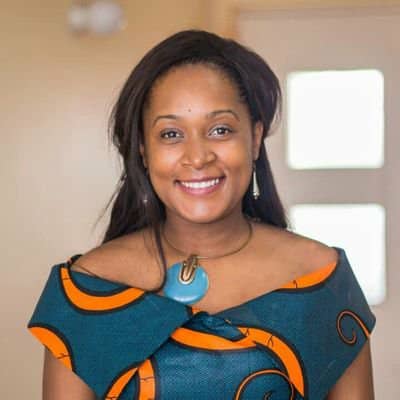 Michelle Kundai Vhudzijena is a Senior Research Associate at CEPAR and the School of Risk and Actuarial Studies at the UNSW Business School. She joined CEPAR in May 2019 as a doctoral student and completed a PhD in Actuarial Studies at the UNSW Business School in October 2023. Her thesis is entitled “Modelling mortality heterogeneity using health trajectories and multimorbidity”. Her primary research interests include mortality heterogeneity, multimorbidity, unsupervised machine learning and cause of death modelling. Michelle is currently working on converting her thesis chapters into working papers, developing the Retirement Income Toolkit, and assessing sustainable aged care financing in Australia.
Michelle Kundai Vhudzijena is a Senior Research Associate at CEPAR and the School of Risk and Actuarial Studies at the UNSW Business School. She joined CEPAR in May 2019 as a doctoral student and completed a PhD in Actuarial Studies at the UNSW Business School in October 2023. Her thesis is entitled “Modelling mortality heterogeneity using health trajectories and multimorbidity”. Her primary research interests include mortality heterogeneity, multimorbidity, unsupervised machine learning and cause of death modelling. Michelle is currently working on converting her thesis chapters into working papers, developing the Retirement Income Toolkit, and assessing sustainable aged care financing in Australia.
SESSION THREE: THE NEXT GENERATION - FUTURE RESEARCH DIRECTIONS
Chair: Marian Baird
Marian Baird (University of Sydney Business School, CEPAR)
Marian Baird is Professor of Gender and Employment Relations at the University of Sydney, a Fellow of the Academy of the Social Sciences in Australia and a Coordinator of the International Leave and Policies Research Network. For her full bio, please refer to session one in the program.
Marian has served as the Director of Mentoring at CEPAR since 2023. Previously she held the role of Director of Mentoring (Emerging Researchers) alongside Sharon Parker who served as Director of Mentoring (Mid-career Researchers). Together they developed and oversaw a suite of research training and mentoring programs designed to support students and early- and mid-career researchers.
Supported Decision-Making for Diverse Older Adults in the 21st Century
Craig Sinclair (School of Psychology, UNSW Sydney, CEPAR)
Older adults encounter key life decisions that are increasingly complex and dictated by service system design. While the laboratory environment can map the individual brain changes that may influence cognitive aspects of a decision-making process, in the real world these decisions are overlaid with resource constraints, societal attitudes, complex relationships, and diverse cultural perspectives. Supported decision-making is a normative rights-based approach which calls on civil society to provide conducive contexts and supportive assistance for people making decisions, particularly in the context of ageing and disability. However supported decision-making has been difficult to define and put into practice. This presentation references two recent projects which offer some insight into how supported decision-making looks in practice, and what is needed to enable an authentic approach to service system design for older adults in the 21st century.
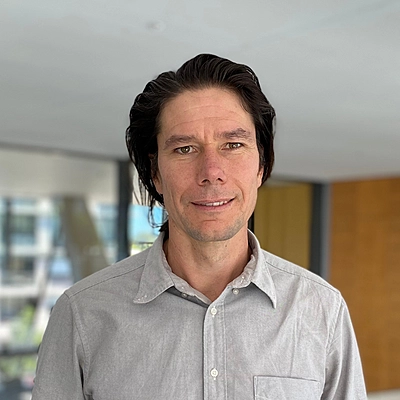 Craig Sinclair is a Senior Research Fellow in the School of Psychology at the University of New South Wales and a CEPAR Associate Investigator. His key research interests include advance care planning and supported decision-making, particularly among older adults receiving aged care. He has previously led a multi-disciplinary project aimed at developing policy and practice in supported decision-making in the aged care sector. He is currently leading an NHMRC funded clinical trial of reminiscence-based life story work and advance care planning, among older and culturally diverse adults receiving home care services in Australia.
Craig Sinclair is a Senior Research Fellow in the School of Psychology at the University of New South Wales and a CEPAR Associate Investigator. His key research interests include advance care planning and supported decision-making, particularly among older adults receiving aged care. He has previously led a multi-disciplinary project aimed at developing policy and practice in supported decision-making in the aged care sector. He is currently leading an NHMRC funded clinical trial of reminiscence-based life story work and advance care planning, among older and culturally diverse adults receiving home care services in Australia.
The Role of Home Equity Release in Retirement: Behavioural Factors, Aged Care and Intergenerational Aspects
Katja Hanewald (School of Risk and Actuarial Studies, UNSW Sydney, CEPAR)
In Australia, as in many countries, housing wealth is a key component of retiree household savings. Australian retirees have several options to access this wealth without selling their homes, including the government’s Home Equity Access Scheme and reverse mortgages. While these options offer potential for improved financial flexibility in retirement, uptake remains modest, suggesting a need for greater public awareness and understanding. This presentation summarises findings from several CEPAR research projects on how behavioural factors, aged care costs and bequests motives affect equity release in Australia and other countries. Our research suggests that barriers to reverse mortgage take-up can be addressed through clearer product information, integrating aged care financing into product design, and enabling better-timed intergenerational wealth transfers. The presentation will conclude with suggestions for future research.
 Katja Hanewald is an Associate Professor in the UNSW School of Risk and Actuarial Studies, a CEPAR Associate Investigator and Vice President of the Asia-Pacific Risk and Insurance Association (APRIA). Her research models longevity and healthy ageing trends and develops risk management and insurance responses to population ageing. She has published over 30 peer-reviewed articles in leading insurance, actuarial, economics, and medical journals, is a Co-Editor of the North American Actuarial Journal, an Editor of the Journal of Pension Economics and Finance and is a member of the editorial boards of the ASTIN Bulletin, the Risk Management and Insurance Review, and the Journal of Retirement. Katja obtained her PhD in Economics from Humboldt-Universität zu Berlin in 2010 and worked as an Economist at the German Federal Ministry of Finance from 2013 to 2015. For more details on my research, see https://www.unsw.edu.au/staff/katja-hanewald.
Katja Hanewald is an Associate Professor in the UNSW School of Risk and Actuarial Studies, a CEPAR Associate Investigator and Vice President of the Asia-Pacific Risk and Insurance Association (APRIA). Her research models longevity and healthy ageing trends and develops risk management and insurance responses to population ageing. She has published over 30 peer-reviewed articles in leading insurance, actuarial, economics, and medical journals, is a Co-Editor of the North American Actuarial Journal, an Editor of the Journal of Pension Economics and Finance and is a member of the editorial boards of the ASTIN Bulletin, the Risk Management and Insurance Review, and the Journal of Retirement. Katja obtained her PhD in Economics from Humboldt-Universität zu Berlin in 2010 and worked as an Economist at the German Federal Ministry of Finance from 2013 to 2015. For more details on my research, see https://www.unsw.edu.au/staff/katja-hanewald.
Micro-founded Macro Models and their Applications to Public Policy Formation in Developed and Developing Countries
George Kudrna (UNSW Business School, UNSW Sydney, CEPAR)
This presentation will explore the use of micro-founded macro models, specifically stochastic overlapping generations (OLG) models. These models incorporate intertemporal household choices and lifecycle behaviours, under survival and labour earnings uncertainties, calibrated with data from household surveys or administrative records. They are general equilibrium models, also integrating production sectors and detailed fiscal policy rules. The technical expertise and numerical techniques required to solve these models will be addressed, highlighting recent developments in parallel programming and cluster computing. Applications of these models in government policy will be presented, referencing recently published and ongoing research on public policy issues such as taxation, pensions, education, and housing in developed countries including Australia, the US, Germany, and the Netherlands, and informality in Southeast Asian developing countries like Indonesia and Vietnam. The presentation will conclude with a discussion on future research directions, which aim to extend stochastic OLG models to cover aged care, migration, and environmental policy.
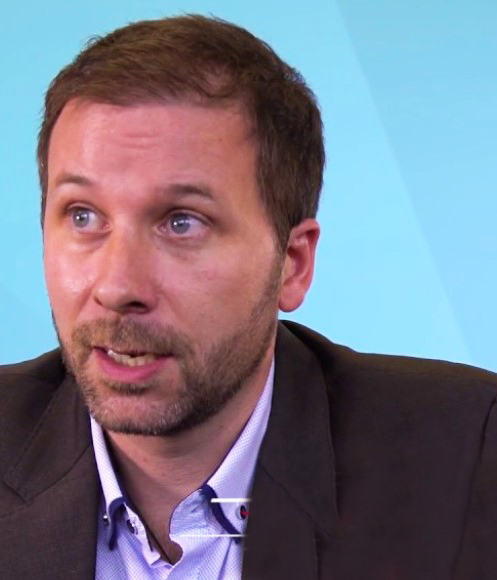 George Kudrna is a Senior Research Economist at CEPAR in the UNSW Business School at UNSW Sydney. He is also affiliated with the Centre for Applied Macroeconomic Analysis (CAMA), the Global Labor Organization (GLO) and UNSW Ageing Futures Institute. His research expertise lies in the areas of public economics and macroeconomics, more specifically including fiscal policy, pension economics and the economics of population ageing and applied general equilibrium modelling. He develops macroeconomic models, capturing lifecycle behaviours of heterogenous households, to study pensions, taxation, education and housing policy, and economy-wide implications of population ageing and policy reforms, applied to developed countries such as Australia and the US, and emerging Asian economies with large informal sector such as Indonesia. He publishes, consults and reviews grant applications on these topics both nationally and internationally. His recent publications have appeared, for example, in the International Economic Review and the European Economic Review. He leads a large ARC linkage grant with World Bank and Bappenas on modelling policy for ageing in emerging economies. For publication, working papers and presentations see https://sites.google.com/site/georgekudrna.
George Kudrna is a Senior Research Economist at CEPAR in the UNSW Business School at UNSW Sydney. He is also affiliated with the Centre for Applied Macroeconomic Analysis (CAMA), the Global Labor Organization (GLO) and UNSW Ageing Futures Institute. His research expertise lies in the areas of public economics and macroeconomics, more specifically including fiscal policy, pension economics and the economics of population ageing and applied general equilibrium modelling. He develops macroeconomic models, capturing lifecycle behaviours of heterogenous households, to study pensions, taxation, education and housing policy, and economy-wide implications of population ageing and policy reforms, applied to developed countries such as Australia and the US, and emerging Asian economies with large informal sector such as Indonesia. He publishes, consults and reviews grant applications on these topics both nationally and internationally. His recent publications have appeared, for example, in the International Economic Review and the European Economic Review. He leads a large ARC linkage grant with World Bank and Bappenas on modelling policy for ageing in emerging economies. For publication, working papers and presentations see https://sites.google.com/site/georgekudrna.
Designing more Age Inclusive Work and Workplaces: Ongoing and Future Research Directions
Daniela Andrei (School of Management and Marketing, Curtin University, CEPAR)
Daniela’s current research interests revolve around exploring the intricate dynamics between employee age and work characteristics within organisations. Focusing on the organisational level, she is exploring how we can leverage novel analytic techniques to better understand how employee age interacts with the multitude of work design characteristics which can be experienced at the same time, as well as how we can individualise bundles of HR practices to better support employees across the lifespan. At the individual level, she is keen to contribute to research that sheds light on the daily experiences of age bias, particularly through incivility and microaggressions, and their contribution to employees' well-being and productivity. Additionally, she is exploring the social comparison processes involved in interactions between age diverse employees and their impact on knowledge sharing. This dual focus aims to create more inclusive and effective workplaces by addressing both systemic and interpersonal challenges related to ageing and age diversity.
 Daniela Andrei is a Senior Lecturer in the School of Management and Marketing at Curtin University, a CEPAR Associate Investigator and a member of the Cost Action - LeverAGE. She is coordinating large-scale, applied research projects aiming to support organisations to tackle contemporary challenges such as managing an ageing / age diverse workforce, changing work conditions, or supporting employee wellbeing. In her research, Daniela is particularly interested in understanding the forces that shape people’s jobs and their experiences at work across the lifespan. She also investigates the consequences of these experiences on employee performance, wellbeing and safety. Daniela's research has been published in journals such as the Journal of Applied Psychology, Safety Science, and the Journal of Vocational Behavior. She has co-authored several research reports for industry and government, including Safe Work Australia, the Australian Maritime Safety Authority (AMSA), and the International Mining for Development Centre (IM4DC).
Daniela Andrei is a Senior Lecturer in the School of Management and Marketing at Curtin University, a CEPAR Associate Investigator and a member of the Cost Action - LeverAGE. She is coordinating large-scale, applied research projects aiming to support organisations to tackle contemporary challenges such as managing an ageing / age diverse workforce, changing work conditions, or supporting employee wellbeing. In her research, Daniela is particularly interested in understanding the forces that shape people’s jobs and their experiences at work across the lifespan. She also investigates the consequences of these experiences on employee performance, wellbeing and safety. Daniela's research has been published in journals such as the Journal of Applied Psychology, Safety Science, and the Journal of Vocational Behavior. She has co-authored several research reports for industry and government, including Safe Work Australia, the Australian Maritime Safety Authority (AMSA), and the International Mining for Development Centre (IM4DC).
Population Ageing, National Saving and External Balances
Larry Weifeng Liu (Crawford School of Public Policy, ANU, CEPAR)
The world has been experiencing dramatic demographic change since World War II, driven by decreasing fertility and increasing longevity. This low-frequency change has long-term impacts on national saving, investment and the interest rate in every country. In addition, although the world shares a similar long-run trend, countries are asymmetric in the timing and speed of the demographic transitions. This asymmetry together with country heterogeneity has long-term implications on national saving-investment balances (external balances), the global interest rates and the landscape of the global economy. This presentation provides an overview of the topic covering theoretical and empirical studies, and presents current research including empirical analysis based on historical data and model simulations about future demographic change. The presentation also outlines a broad research plan for the future, with a particular focus on Asia.
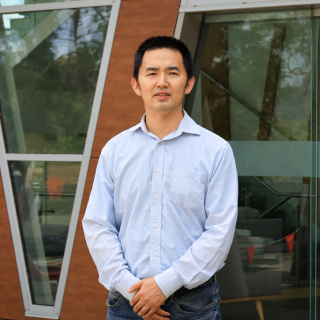 Larry Weifeng Liu is a CEPAR Research Fellow in the Crawford School of Public Policy at ANU. He is broadly interested in macroeconomics, public economics, and international economics, and particularly interested in long-term global economic issues, including population ageing and climate change.
Larry Weifeng Liu is a CEPAR Research Fellow in the Crawford School of Public Policy at ANU. He is broadly interested in macroeconomics, public economics, and international economics, and particularly interested in long-term global economic issues, including population ageing and climate change.
CEPAR members who need to make special arrangements for caring responsibility in order to attend a CEPAR workshop or conference may apply for CEPAR funding to meet these additional expenses by completing the application form (contact cepar@unsw.edu.au).
For event and media enquiries or to discuss accessibility needs, please email s.weiss@unsw.edu.au.
